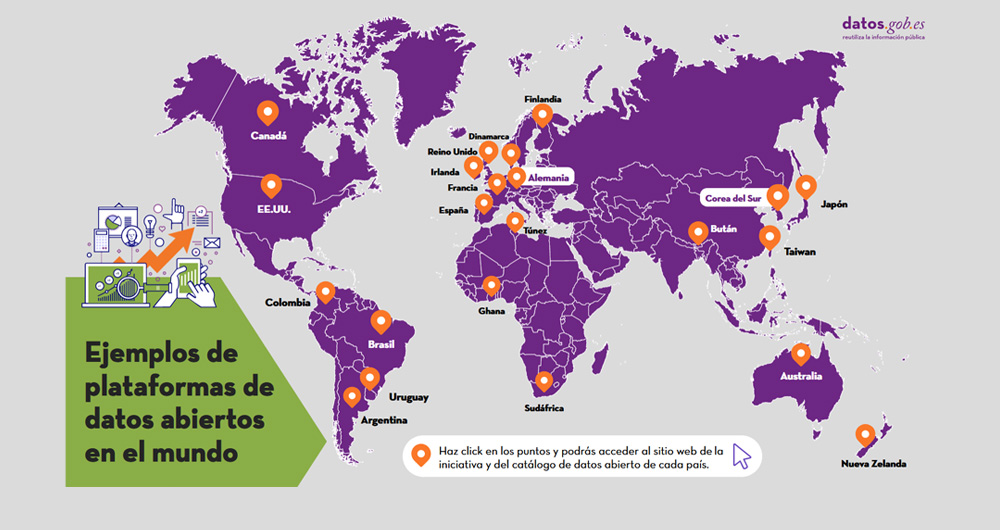13 posts found
Open data to drive energy efficiency and sustainability
The promotion of energy efficiency and sustainability is one of the priorities of the European Union and Spain, as reflected in the European Green Pact. The availability of open data related to energy production, distribution and consumption allows governments, businesses and citizens to access…
The importance of Critical Minerals: Where to locate data of interest?
The energy transition is also a transition of raw materials. When we imagine a sustainable future, we conceive it based on a series of strategic sectors such as renewable energies or electric mobility. Similarly, we imagine a connected and digital future, where new innovations and business models re…
The implementation of the EU Data Governance Regulation in Public Administrations
Since 24 September last year, the Regulation (EU) 2022/868 of the European Parliament and of the Council of 30 May 2022, on European Data Governance (Data Governance Regulation) has been applicable throughout the European Union. Since it is a Regulation, its provisions are directly effective without…
Open data for AI: UNESCO recommendations on open data
The UNESCO (United Nations Educational, Scientific and Cultural Organization) is a United Nations agency whose purpose is to contribute to peace and security in the world through education, science, culture and communication. In order to achieve its objective, this organisation usually est…
Hot OSM: Collaborative mapping to coordinate emergency response
The humanitarian crisis following the earthquake in Haiti in 2010 was the starting point for a voluntary initiative to create maps to identify the level of damage and vulnerability by areas, and thus to coordinate emergency teams. Since then, the collaborative mapping project known as Hot OSM (OpenS…
Validation of the Royal Decree-Law on reuse of public sector information and open data
Why a Royal Decree-Law?
In the plenary session of the Congress of Deputies held on December 2, 2021, Royal Decree-Law 24/2021, of November 2, on the transposition of several European Union directives, including Directive (EU) 2019/1024 of the European Parliament and of the Council, of June 20, 2019,…
Trends in open data around the world
In view of the series of current and future trends around the future of open data indicated in our report, we wanted to check to what extent these - or similar - trends are already present in the global open data community. To this end, we have verified the current activities and future plans of sev…
Open data and the reuse of public sector information in the IV Open Government Plan
The IV Open Government Plan 2020-2024 represents a new step in the achievement of the Sustainable Development Goals promoted by the United Nations within the framework of the 2030 Agenda adopted by its General Assembly. Specifically, for the achievement of number 16, related to Peace, Justice and S…
Education through MooCs
During the second quarter of 2020, humanity was forced to improvise a large-scale experiment in distance education due to the need to close schools at all levels to help contain the spread of the COVID-19 pandemic. Like many other sectors and activities, whose face-to-face formula has been abruptly…
How do Spanish initiatives measure the impact of open data?
Measuring the impact of open data is not always easy. As we saw a few weeks ago, there are several theoretical models that are not easy to implement, so we have to look for different approaches. In the Aporta Initiative we use a mixed approach, as explained here: a quantitative analysis through indi…









